The Words That Made Us
Revisit key constitutional questions through the lens of history and law.
Summer 2011
Washington, DC
This seminar explores issues of American identity, American character, and American citizenship. All of the readings will be found in What So Proudly We Hail: The American Soul in Story, Speech, and Song, edited by Amy A. Kass, Leon R. Kass, and Diana Schaub.
The first two days (sessions one through four) will be devoted to the American character: we will explore what kind of human beings are likely to emerge in a regime founded on individual rights, equality, enterprise and commerce, and freedom of religion. The next three days (sessions five through nine) will focus on virtues requisite for a more robust citizenry: self-command, law-abidingness, courage, compassion, charity and reverence. Our tenth and final session will be devoted to a more general discussion of American identity and American citizenship today.
Image from Library of Congress
Amy & Leon Kass on liberal education & citizenship
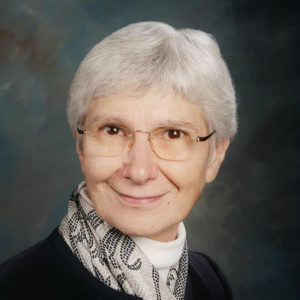
Amy Apfel Kass (1940 – 2015) was a senior fellow at the Hudson Institute, Senior Lecturer Emerita in the humanities at the University of Chicago, and coeditor of What So Proudly We Hail: The American Soul in Story, Speech, and Song. She was an award-winning teacher of classic texts.

Amy Apfel Kass (1940 – 2015) was a senior fellow at the Hudson Institute, Senior Lecturer Emerita in the humanities at the University of Chicago, and coeditor of What So Proudly We Hail: The American Soul in Story, Speech, and Song (Intercollegiate Studies Institute, 2011). She was an award-winning teacher of classic texts.
Ms. Kass was the founding director of the nationwide Tocqueville Seminars on Civic Leadership, and, more recently, the nationwide Dialogues on Civic Philanthropy. She served on the National Council on the Humanities for the National Endowment for the Humanities, and as a consultant to the Corporation for Public Broadcasting and the Corporation for National and Community Service. Ms. Kass was an adviser to Civic Enterprises and the National Conference on Citizenship and a member of the board of the Ethics and Public Policy Center.
She was the author of numerous articles and editor of the anthologies American Lives: Cultural Differences, Individual Distinction (Golden Owl, 1995), The Perfect Gift: The Philanthropic Imagination in Poetry and Prose (Indiana University Press, 2002), and Giving Well, Doing Good: Readings for Thoughtful Philanthropists (Indiana University Press, 2007). With her husband, she produced two or more anthologies, one on courting and marrying (Wing to Wing, Oar to Oar), and one on American national identity and civic attachment (What So Proudly We Hail), as well as a series of e-books on The American Calendar, one for each of ten national holidays.
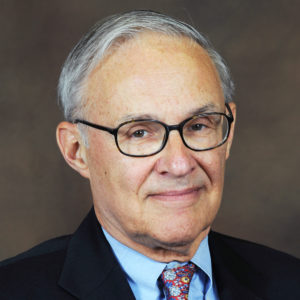
Leon R. Kass, M.D., is the Madden-Jewett Scholar at the American Enterprise Institute and Harding Professor Emeritus in the Committee on Social Thought at the University of Chicago. From 2001 to 2005, he was chairman of the President’s Council on Bioethics.

Leon R. Kass is Dean of the Faculty at Shalem College, Professor Emeritus in the Committee on Social Thought at the University of Chicago, and Scholar Emeritus at the American Enterprise Institute in Washington, DC. He was the chairman of the President’s Council on Bioethics from 2001 to 2005.
Originally trained in medicine and biochemistry, he shifted directions from doing science to thinking about its human meaning, and he has been engaged for forty years with ethical and philosophical issues raised by biomedical advancements, and, more recently, with broader moral and cultural issues. Dr. Kass taught at St. John’s College (Annapolis) and Georgetown University before returning in 1976 to the University of Chicago, where he was until 2010 an award-winning teacher deeply involved in undergraduate education and committed to the study of classic texts. With his late wife, Amy A. Kass, he helped found a still-popular core humanities course on Human Being and Citizen and a degree-granting major, Fundamentals: Issues and Texts, emphasizing big questions and great books.
His books include, most recently, Founding God’s Nation: Reading Exodus; Reading Ruth: Birth, Redemption, and the Way of Israel, as well as Toward A More Natural Science: Biology and Human Affairs; The Hungry Soul: Eating and the Perfecting of our Nature; Life, Liberty, and the Defense of Dignity: The Challenge for Bioethics; The Beginning of Wisdom: Reading Genesis; What So Proudly We Hail: The American Soul in Story, Speech, and Song; and Leading a Worthy Life: Finding Meaning in Modern Times. Along with coeditors Amy Kass and Diana Schaub, Dr. Kass developed the What So Proudly We Hail e-curriculum, including video discussions and curricula materials that demonstrate how short stories can be used to enhance our understanding of the Meaning of America and the American Calendar.
Dr. Kass served on the National Council on the Humanities of the National Endowment for the Humanities and delivered its Jefferson Lecture in 2009.
To learn more about Dr. Kass, visit Contemporary Thinkers: Leon Kass.
Readings:
Discussion Questions:
Readings:
Discussion Questions:
Readings:
Discussion Questions:
Readings:
Discussion Questions:
Readings:
Discussion Questions:
Readings:
Discussion Questions:
Readings:
Discussion Questions:
Readings:
Discussion Questions:
Readings:
Discussion Questions:
Readings:
Discussion Questions:
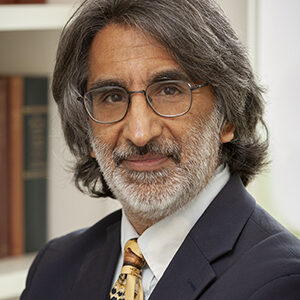
Akhil Reed Amar
Akhil Reed Amar is Sterling Professor of Law and Political Science at Yale University, where he teaches constitutional law in both Yale College and Yale Law School. He is Yale’s only currently active professor to have won the University’s unofficial triple crown — the Sterling Chair for scholarship, the DeVane Medal for teaching, and the Lamar Award for alumni service. His latest and most ambitious book, The Words That Made Us: America’s Constitutional Conversation, 1760-1840, came out in May 2021. He has recently launched a weekly podcast, Amarica’s Constitution.

Adam J. White
Adam J. White is the Laurence H. Silberman Chair in Constitutional Governance and senior fellow at the American Enterprise Institute, where he focuses on the Supreme Court and the administrative state. Concurrently, he codirects the Antonin Scalia Law School’s C. Boyden Gray Center for the Study of the Administrative State.
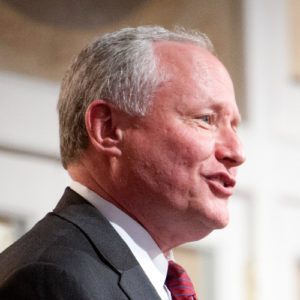
William Kristol
William Kristol is editor at large of The Weekly Standard, which, together with Fred Barnes and John Podhoretz, he founded in 1995. Mr. Kristol has served as chief of staff to the Vice President of the United States and to the Secretary of Education. Before coming to Washington in 1985, Kristol taught politics at the University of Pennsylvania and Harvard’s Kennedy School of Government.
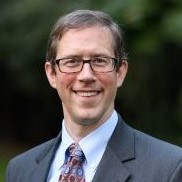
Thomas Merrill
Thomas Merrill is an associate professor in the School of Public Affairs at American University. He is the author of Hume and the Politics of Enlightenment. He is also the co-editor of three edited volumes, including The Political Thought of the Civil War.

Jenna Silber Storey
Jenna Silber Storey is a senior fellow in the Social, Cultural, and Constitutional Studies department at the American Enterprise Institute. She is the co-author of a book with Benjamin Storey: Why We Are Restless: On the Modern Quest for Contentment.
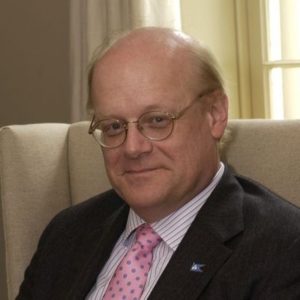
Allen C. Guelzo
Dr. Allen C. Guelzo is Director of the James Madison Program Initiative on Politics and Statesmanship and Senior Research Scholar in the Council of the Humanities at Princeton University. He is the author of Abraham Lincoln: Redeemer President, which won the Lincoln Prize for 2000.